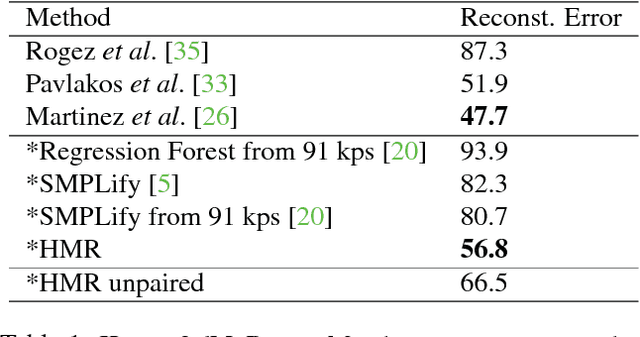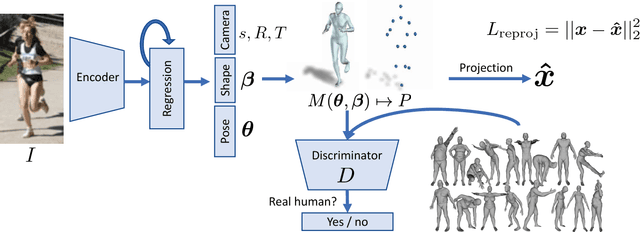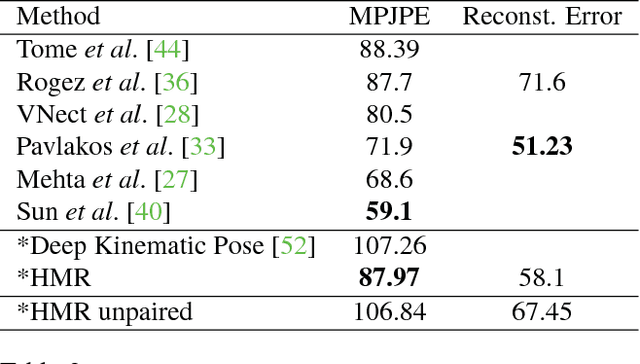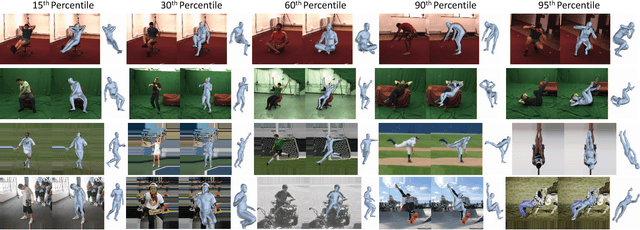End-to-end Recovery of Human Shape and Pose
Paper and Code
Jun 23, 2018



We describe Human Mesh Recovery (HMR), an end-to-end framework for reconstructing a full 3D mesh of a human body from a single RGB image. In contrast to most current methods that compute 2D or 3D joint locations, we produce a richer and more useful mesh representation that is parameterized by shape and 3D joint angles. The main objective is to minimize the reprojection loss of keypoints, which allow our model to be trained using images in-the-wild that only have ground truth 2D annotations. However, the reprojection loss alone leaves the model highly under constrained. In this work we address this problem by introducing an adversary trained to tell whether a human body parameter is real or not using a large database of 3D human meshes. We show that HMR can be trained with and without using any paired 2D-to-3D supervision. We do not rely on intermediate 2D keypoint detections and infer 3D pose and shape parameters directly from image pixels. Our model runs in real-time given a bounding box containing the person. We demonstrate our approach on various images in-the-wild and out-perform previous optimization based methods that output 3D meshes and show competitive results on tasks such as 3D joint location estimation and part segmentation.
 Add to Chrome
Add to Chrome Add to Firefox
Add to Firefox Add to Edge
Add to Edge